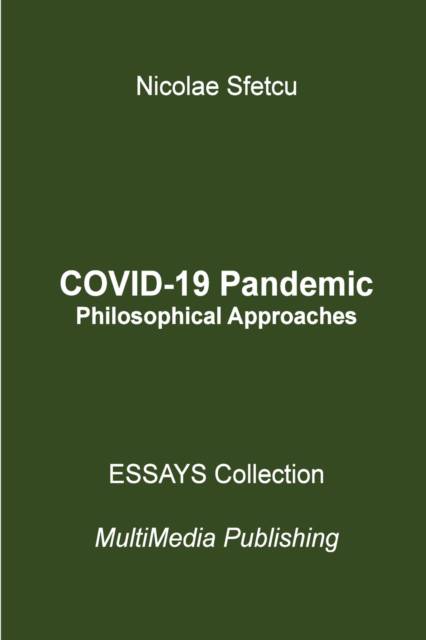
- Retrait gratuit dans votre magasin Club
- 7.000.000 titres dans notre catalogue
- Payer en toute sécurité
- Toujours un magasin près de chez vous
- Retrait gratuit dans votre magasin Club
- 7.000.0000 titres dans notre catalogue
- Payer en toute sécurité
- Toujours un magasin près de chez vous
35,95 €
+ 71 points
Format
Description
The subject of pandemics is approached starting from the existentialism of Albert Camus and Sartre, the replacement of the exclusion ritual with the disciplinary mechanism of Michel Foucault, and about the Gaia hypothesis, developed by James Lovelock and supported in the current pandemic by Bruno Latour. The social dimensions of pandemics, their connection to global warming, which has led to an increase in infectious diseases, and the deforestation of large areas, which have caused viruses to migrate from their native area (their "reservoir") are highlighted below. The ethics of pandemics is approached from several philosophical points of view, of which the most important in a crisis of such global dimensions is utilitarianism which involves maximizing benefits for society in direct conflict with the usual (Kantian) view of respect for people as individuals. After a retrospective of the COVID-19 virus that caused the current pandemic, its life cycle and its history, with an emphasis on the philosophy of death, the concept of biopower initially developed by Foucault is discussed, with reference to the practice of modern states of control of the populations and the debated approach that the current pandemic has led to the bankruptcy of the current "barbaric" capitalism, wondering if the path that humanity will take is a neo-communism. Another important negative effect is desocialization, with the conclusion of some philosophers that we cannot exist independently of our relationships with others, that a person's humanity depends on the humanity of those around him. The last section is dedicated to forecasting what the world will look like after the pandemic, and there are already signs of a paradigm shift, including the sudden disappearance of the "wall" ideology: a cough was enough to make it suddenly impossible to avoid the responsibility that every individual has it towards all living beings for the simple fact that he is part of this world.
Spécifications
Parties prenantes
- Auteur(s) :
- Editeur:
Contenu
- Nombre de pages :
- 102
- Langue:
- Anglais
Caractéristiques
- EAN:
- 9798210094506
- Date de parution :
- 23-08-24
- Format:
- Livre broché
- Format numérique:
- Trade paperback (VS)
- Dimensions :
- 152 mm x 229 mm
- Poids :
- 145 g

Les avis
Nous publions uniquement les avis qui respectent les conditions requises. Consultez nos conditions pour les avis.






